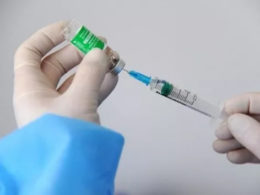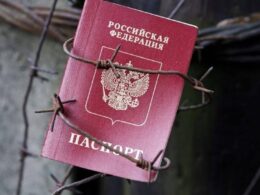The European Union (EU) and the World Health Organization (WHO) have announced a collaboration to strengthen medical evacuation operations in Ukraine, according to a statement by the EU Delegation to Ukraine published on 13 July.
The statement says the WHO European Regional Office in Copenhagen hosted on 22 June the launch of an 18-month project funded by the European Commission’s Service for Foreign Policy Instruments (FPI) entitled "Strengthening Ukraine Ministry of Health accountability Framework for medical evacuation- and Repatriation systems and services."
The ongoing Russian invasion has severely impacted Ukraine's healthcare system, making it challenging to maintain essential services. Patients from the frontline areas requiring specialized treatment often must be transferred to hospitals in more central areas or even outside of Ukraine. The Ukrainian Ministry of Health coordinates Medevac operations, which involve hundreds of daily patient transfers inside the country and dozens of cross-border transfers each week.
“Medevac remains an essential component of the humanitarian effort to meet the health needs of patients who cannot be treated inside Ukraine at this moment,” explained Dr Gerald Rockenschaub, WHO European Region Emergency Director.
Through the EU Civil Protection Mechanism, over 2350 Ukrainian patients have been transported to hospitals in 21 European countries, receiving treatment for severe war wounds or conditions that cannot be adequately addressed within Ukraine. Over 370 patients have requested and been supported to return to Ukraine once the acute phase of their treatment has ended.
"In coordination with the EU Civil Protection Mechanism, our new project will further help alleviate the pressure on Ukraine’s healthcare system, helping evacuated patients to return and integrate into national rehabilitation schemes, while also supporting provision of the best possible care for patients,’’ commented Peter M.Wagner, Head of the European Commission’s Service for Foreign Policy Instruments.
Read also:
- Four injured in Russia’s air attack on Kyiv as Ukraine destroys two missiles, all 20 Shahed drones
- Russian attack on Zaporizhzhia’s city park: 18 people, including 6 children, were injured
- Russian troops destroy 184 medical facilities in Ukraine since beginning of war
- Russia carried out more than 1,000 attacks on Ukrainian health care facilities – WHO
- Russian missile attack kills at least six, injures 35 people in Lviv (updated)
- Russian attack on Kharkiv Oblast injures 38, including 12 children (updated)
- Russian drone attack kills two, injures 19 in Sumy (update)




